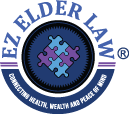In Booth v. State, the Georgia Supreme Court considered the appeal of a daughter convicted of killing her mother. Booth took custody of her elderly mother, Cowart, after she was discharged from the hospital in October 2016. Booth cared for Cowart in Booth’s home with the assistance of a registered nurse until early December. Cowart […]
Blog
On April 23, 2021, the Tennessee Court of Appeals decided Estate of Shelton D. Ramey, Case No. E2020-00270-COA-R3-CV. The Court’s syllabus is as follows: This appeal concerns a residual beneficiary’s objection to an estate administrator receiving any fees based upon the latter’s alleged breach of fiduciary duty. David Ramey (“Ramey”) is a beneficiary under his […]
In Giller v. Slosberg, an elderly father revoked an existing power of attorney, executed a new power of attorney, and made changes to certain financial accounts relating to his estate-planning strategy. Giller and Seidner (sisters) appealed a judment following a jury verdict in favor of their brother, Slosberg. Slosberg believed his sisters exerted undue influence […]
The American College of Trust and Estate Counsel (ACTEC) provides an overview of how property can be owned, including joint tenancy, tenancy in common, tenants by entirety, sole ownership, and community property.
The American College of Trust and Estate Counsel (ACTEC) discusses common ways to title your home.
The American College of Trust and Estate Counsel (ACTEC) answers the question, “what is joint tenancy?”
A forthcoming article was reviewed in WILLS, TRUSTS, & ESTATES LAW eJOURNAL, Sponsored by The American College of Trust and Estate Counsel (ACTEC) Foundation, Vol. 17, No. 10: Apr 29, 2021. The article recognizes that much in the field of Wills is obsessed with pre-determining the outcome of potential litigation. It centers on an empirical […]
The RAISE Family Caregivers Act, Public Law 115-119 (January 22, 2018) directs the Secretary of Health and Human Services to develop a national family caregiving strategy. The strategy will identify actions that communities, providers, government, and others are taking and may take to recognize and support family caregivers, and will include: Promoting greater adoption of person- […]
In Olmstead v. L.C., 527 U.S. 581 (1999), the Supreme Court turned treatment for individuals with special needs on its head. Justice Ginsburg, writing for the Court framed the issue presented as follows: “Specifically, we confront the question whether the proscription of discrimination may require placement of persons with mental disabilities in community settings rather […]

Section 1(e) of the Internal Revenue Code imposes an income tax on estate and trusts. 2021 federal income tax rates for estates and trusts are included in Revenue Procedure 2020-45. They are as follows: If taxable income is: The tax is: Not over $2,650 – 10% of taxable income Over $2,650, but not over $9,550 […]



